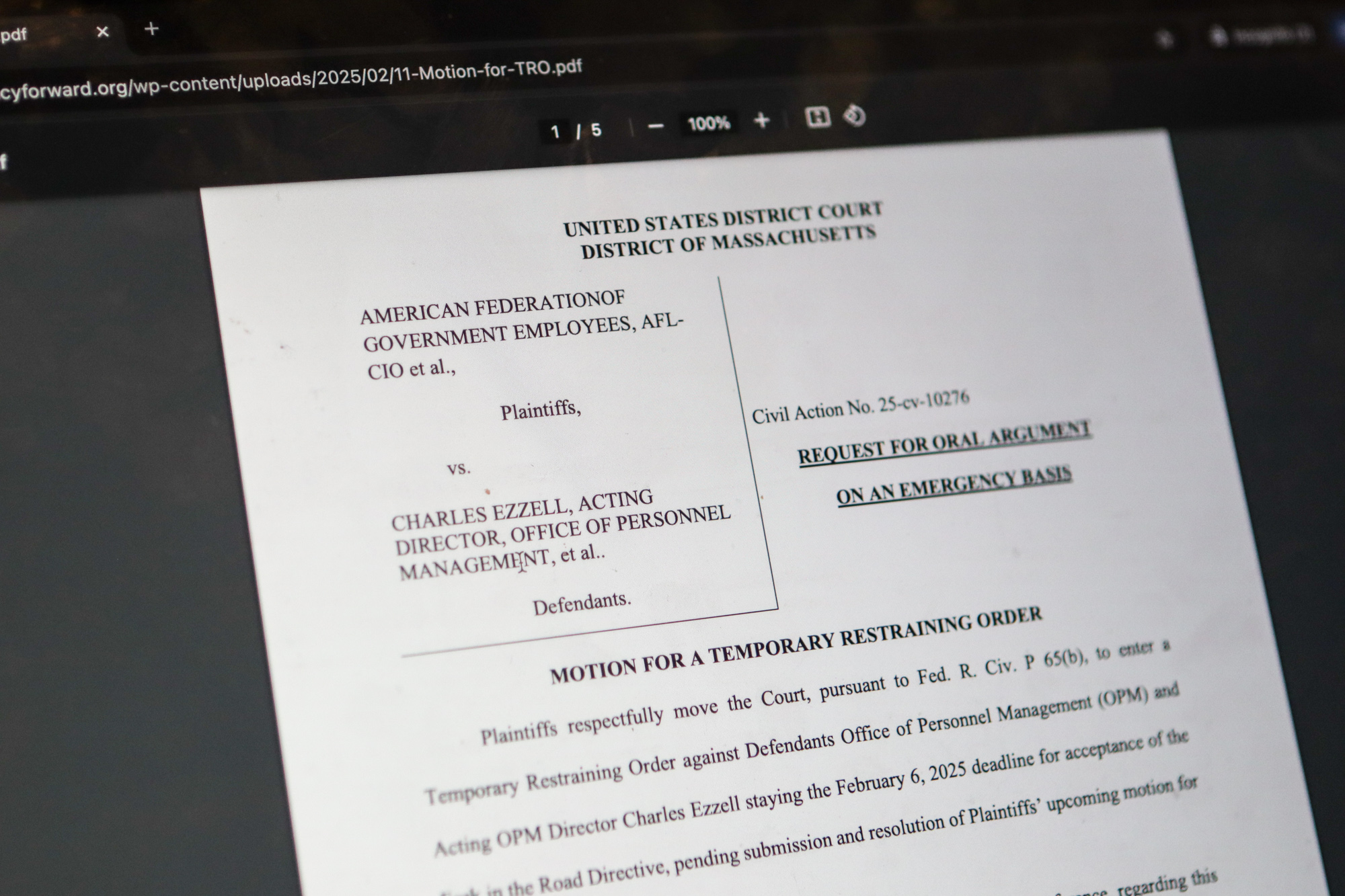A federal judge in Boston lifted the pause on the deadline for the Trump administration’s “deferred resignation” federal buyout program, according to a ruling filed Wednesday. The program, which was promoted extensively by Elon Musk in his plan to downsize the federal government, will now move forward.

The “deferred resignation” federal buyout program allowed federal employees to resign within a specific window of time and be guaranteed pay until Sept. 30.
Two weeks ago, federal employees received an email entitled “Fork in the Road” by the Office of Personnel Management. The email gave them the option to resign and receive the benefits of this program, or stay in their position. In the email, it said that for those who chose to not resign, the security of their position would not be guaranteed.
The American Federation of Government Employees, the National Association of Government Employees and the American Federation of State, County and Municipal Employees filed a lawsuit against this program Feb. 4.
According to a statement from AFGE National President Everett Kelly, “We continue to maintain it is illegal to force American citizens who have dedicated their careers to public service to make a decision, in a few short days, without adequate information, about whether to uproot their families and leave their careers for what amounts to an unfunded IOU from Elon Musk.”
75,000 US federal employees ended up accepting the offer before the program closed Wednesday night.
Elena Goldstein, the senior legal advisor for Democracy Forward, a legal team who represented labor unions who sued the federal government over the resignation offers, argued the two-week period to resign was “incredibly short” and questioned the legality of the OPM’s resignation process, per the lawsuit.
Nina Gulbransen, president of the BU College Democrats, said she believes the resignation program is “very mismanaged.”
“It seems as if this is a plan to basically get rid of a lot of non-political employees in the federal government who have worked there for a long time, whose livelihoods depend on their careers, and replace them with loyalists to the Trump administration,” she said.
Grace Price, vice president of the BU College Republicans, said she believes a lot of money is being extracted from the federal budget.
“I do think that there needs to be some serious reforms in our productivity in this country, just because, since COVID, the productivity of our country is down,” said Price.
Eric Hamilton, who represented the Department of Justice during the Monday hearing, said extending the period of time for resignation and participation in the program would cause irreparable harm and cause disruption in the federal workforce. Hamilton said the program is a “humane” option for federal employees.
Price referred to the resignation program as a “nice gesture.”
“I don’t see how a buyout program could be less beneficial for anyone than just being outright fired,” she said.
Gulbransen said she doesn’t believe Hamilton’s argument “holds a lot of weight or merit.”
“It’s kind of an intimidation tactic, and so I wouldn’t say it’s humane in any aspect,” said Gulbransen.
An important part of the hearing involved the time in which federal employees were promised payment.
Goldstein argued the government’s promise to pay them until Sep. 30 exceeds its authority and violates the Anti-Deficiency Act, which “prohibits federal agencies from obligating or expending federal funds in advance or in excess of an appropriation, and from accepting voluntary services,” as defined by the U.S. Government Accountability Office.
Brad Baranowski, an assistant professor at the Boston University School of Law, spoke about the complaint and the significance of the group bringing up the Anti-Deficiency Act.
“There’s two parts of their appropriations argument,” Baranowski said. “There’s the constitutional issue which only Congress gets to appropriate. And then there’s a statute that actually forbids agencies from making payments in excess of or before an appropriation.”
Baranowski said this appropriation issue reflects a “bigger theme” between the president’s power and Congress when it comes to allocating funds.
“There’s a bigger theme here, where there’s kind of a seeming disregard for Congress’s role as keeper of the purse,” he said.




















































































































